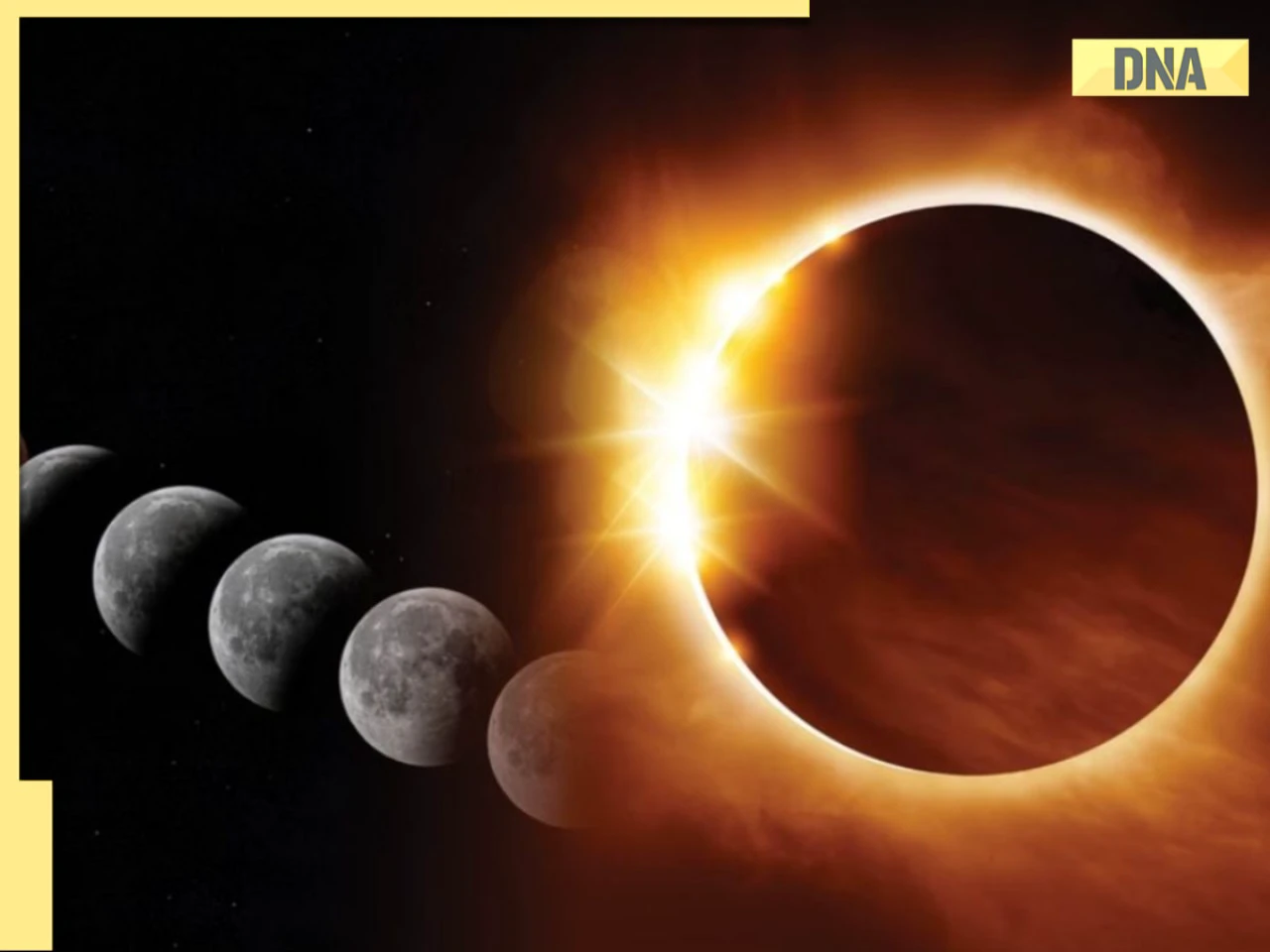After witnessing a Total Lunar Eclipse or Blood Moon, skygazers across the globe are in for a treat again as the last solar eclipse of 2025 will grace the skies on Sunday night, September 21, 2025. The last solar eclipse of 2025 will be partial and will not be visible from India.
People living in parts of Australia, Antarctica, the Pacific Ocean, and the Atlantic Ocean may be able to witness the celestial event.
A solar eclipse occurs when the Moon passes directly between the Sun and Earth, and the Moon casts a shadow on the Earth and blocks sunlight completely. But during a partial eclipse, only 85 per cent of the Sun will be obscured in some places by the Moon.
In a partial eclipse, Earth’s shadow appears very dark on the side of the Moon facing Earth. What people see from Earth during a partial lunar eclipse depends on how the Sun, Earth, and Moon align.
Surya Grahan timings, how to watch
The celestial event will begin at 10:59 pm IST (1:29 pm EDT) and end at 3:23 am IST (5:53 pm EDT) on September 22. The maximum eclipse phase will be at 1:11 am IST (3:41 am EDT). According to space.com, the eclipse will be visible in parts of Antarctica (4:49 am to 6:53 pm local time), Australia (6:13 am to 7:36 am), and New Zealand (5:41 am to 8:36 am).
The year 2025 had four eclipses, two partial solar eclipses and two total lunar eclipses. The partial eclipse on Sunday night is the second and last eclipse of 2025. It will also occur a day before the autumnal equinox or the official start of fall in the northern hemisphere, marked on September 22. Astronomically, this is the time when the Sun finds itself exactly above the equator. On this day, Earth isn’t tilted toward or away from the Sun, and both day and night are almost exactly 12 hours (with a few small exceptions). Meanwhile, the next solar eclipse is slated for February 17 and August 12, 2026. While these will again not be visible from India, the country will get to witness a solar eclipse in August 2027.
Surya Grahan Do’s and Don’ts
Do’s:
- Meditate and Pray: Sit silently on a kusha asana, chant mantras associated with Lord Vishnu, Lord Shiva, or Goddess Durga, or simply chant “AUM” and focus on your breath.
- Stay Inside: Protect your energy by staying indoors during the eclipse.
- Use Kusha or Tulsi Patra: Add Kusha grass or Tulsi leaves to your food to prevent contamination.
- Read Religious Texts: Read scriptures like Sundar Kand, Ramacharitmanas, or Bhagavad Gita if you’re unable to chant mantras.
- Cover Idols: Cover your deities before the eclipse begins.
- Cleanse with Gangajal: Sprinkle Gangajal after the eclipse to purify your surroundings and aura.
- Take a Bath: Take a bath or sprinkle Gangajal on yourself after the eclipse.
Don’ts:
- Avoid Eating: Refrain from eating during the eclipse, except for those with chronic illnesses who need medication or food.
- Don’t Start New Projects: Avoid initiating new ventures on this day, as it’s considered inauspicious.
- No Cooking: Don’t cook during the eclipse.
- Avoid Sharp Objects: Refrain from using sharp objects.
- Don’t Drink or Eat: Avoid consuming food and drinks during the eclipse.
- No Physical Contact: Avoid physical interactions.
- Respect Idols and Tulsi: Don’t touch idols or the holy Tulsi plant.
